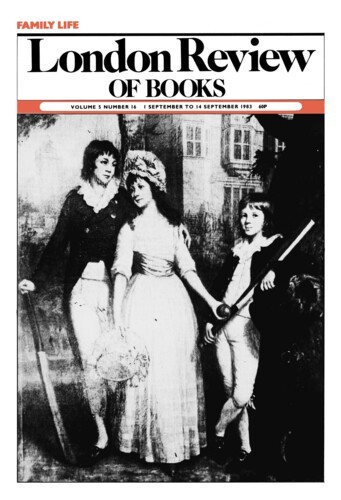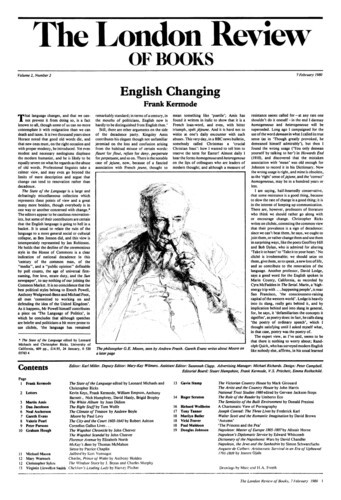Back home
Mary Warnock, 1 September 1983
The question what we are to think of the family has taken on a new urgency. We are flooded with instructions. Thatcherism is identified with a call to return to Victorian values. These consist in the teaching and learning of a moral code, respect for and obedience to a patriarchal figure, and a subordinate and primarily domestic role for women. The return is thus a return to the quintessential family. On the other hand, following the 1960s’ denunciation of the family by psychiatrists and sociologists as the seat of all conflict and derangement, we now have the radical-socialist feminists who regard the family in much the same light. Far from the family being that which is essential to the structure of society, on whose preservation we depend for the future of civilised life, they regard it as an instrument of exploitation: an institution designed for the oppression of women and children, and propped up by all the buttresses of a masculine ideology. Presented thus, the conflict of attitudes towards the family may seem a straight fight between right and left, a political battle in the narrowest sense. Or it may seem a conflict between the self-interested conservatism of men, and the imaginative radicalism of women, who, if they are feminists, tend now to present themselves as revolutionaries or nothing. Unsurprisingly, such dichotomies do not help us greatly in settling, at a practical level, whether or not the family as an institution is at all costs to be defended.


